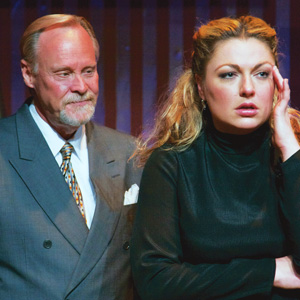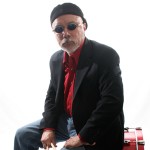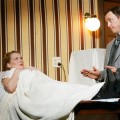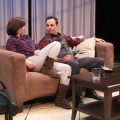With Hedda Gabler, playwright Henrik Ibsen created one of the stage’s most psychologically complex, morally aberrant and profoundly enigmatic characters. Critics were disgusted by the play and its eponymous heroine when Hedda Gabler premiered in 1891, but later it would be regarded as a classic—the most widely performed play by the world’s most widely performed playwright after Shakespeare. Hedda’s grotesquery, so shocking to Victorian audiences, has proved an enduring fascination—we are attracted to this figure even as she repels us. Ibsen’s work comes to City Lights Theater by way of Brian Friel’s recent adaptation, an engrossing, if flawed version which shifts the action from the late 19th century to the 1930s and takes extensive liberties with the text while leaving the plot intact.
Hedda (Hayley Galbraith) returns from her honeymoon with her husband, George Tesman (Robert Sean Campbell), a stuffy academic who has spent the entire trip poring over source material for his studies on 10th-century domestic industries. As she contemplates the life of boredom that lies ahead of her, former lover Eilert Lšvborg (Paul Henry) arrives on the scene, along with an old schoolmate, Thea Elvsted (Roneet Aliza Rahamim), who is now in a creative and romantic partnership with Lšvborg. In response, Hedda embarks on a series of vicious manipulations that lead to disaster for everyone involved.
Ibsen, a contemporary of Freud, anticipated psychoanalysis in his depiction of Hedda. By keeping the exact nature of her neurosis a mystery, however, he left the role open to a variety of interpretations. Here, Hedda leans toward the villainous side, but calling her evil would be too simple. She is the prisoner of circumstances, of gender roles and of her own cruel nature, trapped between her boring husband and Judge Brack (Steve Lambert), a family friend with questionable motives. Galbraith handles this demanding role beautifully, while Lambert deserves high marks for his Judge Brack, whose genial exterior barely masks the predatory devil within. Campbell’s Tesman, unremittingly enthusiastic and completely oblivious, contributes a welcome dose of comedy, though he is perhaps more likeable than he should be.
Friel’s translation, which makes some of Hedda’s motivations more explicit than they were originally, is likely to rub some the wrong way. Even so, the strong performances and fine direction by Virginia Drake make this a riveting production, recommended especially for those who are new to the play.
Hedda Gabler
Runs through April 21: $17.95-$29.95
City Lights

 Drummer Wally Schnalle Brings Idiot Fish to City Lights
Drummer Wally Schnalle Brings Idiot Fish to City Lights  Kyusu Burmese Cuisine
Kyusu Burmese Cuisine 


